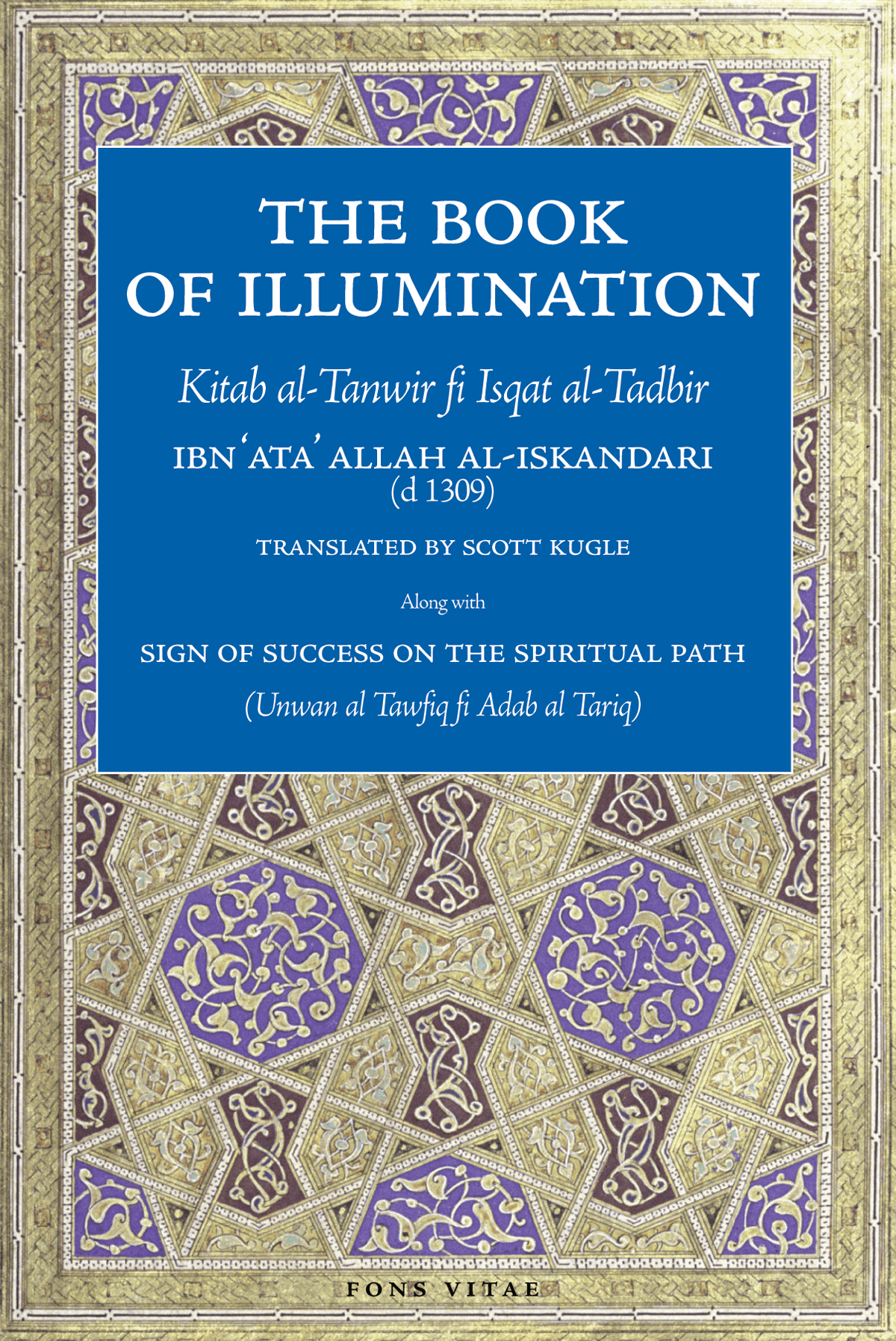The Book of Illumination is a translation of al-Tanwir fi Isqat al-Tadbir, a Sufi text composed by the Muslim saint and jurist, Ibn Ata’illah al-Iskandari. The text is about avoiding the anxieties associated with rational calculation, hoarding wealth, and exercising self-interest. It consists of ethical commentary on the Qur’an, traditions of the Prophet Muhammad, and examples of North African Sufi masters. The author meant it to be an ethical introduction to Sufi mysticism, a first stepping-stone for aspirants who would experience spiritual intimacy with God within the framework of Islamic ethics and law.
While revealing important characteristics of North African Islamic thought, The Book of Illumination also addresses the concerns of contemporary audiences. The text offers deep insight into topics crucial to many people who are exploring “spirituality” in the age of late capitalism with its consumer-driven economics and endless production of new desires and proliferation of choices. Though thoroughly medieval in its subtle elaboration on the richness of scripture and its belief in the efficacy of sainthood, The Illumination is also uniquely contemporary in its piercing critique of selfish desire and rational calculation. The argument of this thirteenth century Muslim author articulates an “Islamic work ethic” that challenges many sociological assumptions of Max Weber while simultaneously dissecting many assumptions of our contemporary consumerist culture whose triumph Weber had announced with such ambivalence.
* * *
What happens if you stop taking care of yourself? Will anyone else step in to take care of you? This Sufi text by the renowned Shadhili master, Ibn Ata’illah al-Iskandari, asks and answers this basic existential question about the way we live our lives. In Kitab al-Tanwir fi Isqat al-Tadbir, Ibn Ata’illah proposes that if you desist from selfish calculation to secure your own welfare, then you invite Allah to step in and take care of you, materially as well as spiritually. That seems simple enough, but the text reveals the profound depth of this proposition. It weaves together creative Qur’anic interpretation and explanation of rare teachings from the Prophet Muhammad’s traditions with the Sufi master’s own poetry, parables, and stories of past Shadhili masters.
The Book of Illumination has been the basic training manual for Sufis in North Africa, and serves as an indispensible introduction to Ibn Ata’illah’s more advanced writings, such as his Sufi Aphorisms (Kitab al-Hikam). In this age of conspicuous consumption and capitalist greed, a translation of the Book of Illumination has special value. It upholds the spiritual value of work while urging readers to simplify their reliance on material means and question their obsession with possessing and craving. It argues for a spirituality of living in the world without relying on the world, a spirituality that is more relevant now than ever.
